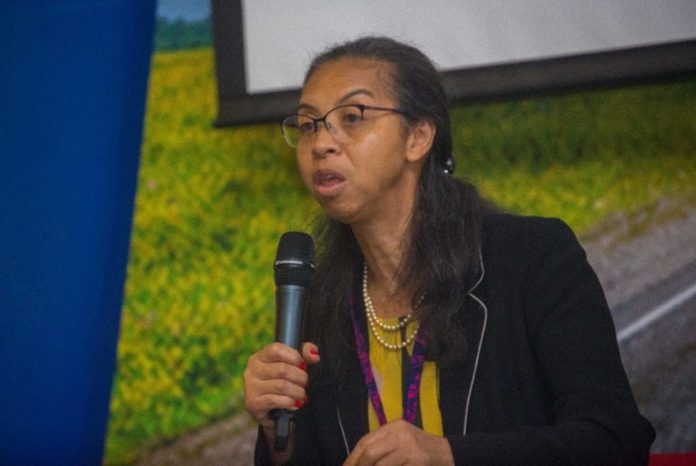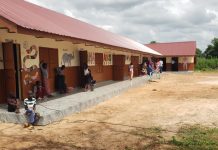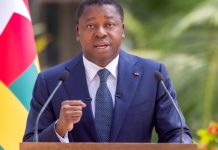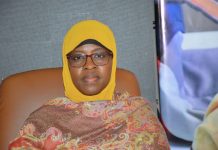By Kebba Jeffang
The former Principal of Marina International says, to ensure that quality education is realised in The Gambia, the country must be committed to building its human capital as part of many other needed efforts to rebrand the education system.
Madam Patriacia Lamour has left the Gambia nine years ago to head the Aspire Education Group in the United Kingdom as CEO which she co-founded, an institution that develops curriculums, consultancy, among other functions.
It is reported that out of 13, 335 students who sat to 2018 WASSCE exam, only 2,183 candidates or more, have five credits in 2018 but better than 2017 when the score was 1,656. This performance was described as abysmal by many concerned Gambians who criticized the status quo of education system.
In an exclusive at the sideline of Taf Africa Global Conference (TAFCON 2018) in Brufut, held in December, Lamour tasked the government to be committed and see education as the driver of the nation’s development and also a solving tool for the country’s problem using the means of creativity, intellect and practical skills.
She strongly suggested that the country’s curriculum must be redone to fit the realities on the ground – discouraging imported policies that can’t fit the demand of the country including the medium in which the message is passed onto students.
As per research she cited: “There is evidence being shown that children who were not taught in their mother tongue first are not doing well in school. It’s impeding them (students) because they are being taught English language as if it was your first language when it was not.”
She encouraged the use of home languages such as Wolof, Mandingo, Fula and others to be prioritized in school systems.
“Do you know in Europe you have people doing their PhDs in African history and languages? Yet within our countries themselves we have not taken it to that level, and it is yours. If other people are getting PhDs what do you expect in your own stuff,” she asked rhetorically.
Madam Lamour recalled her time at Marina International when she introduced African literature for GSE in the school including the works of some Gambians like Nana Grey-Johnson.
“For the area of academic, it is necessary to re-develop the curriculum,” she said.
The Gambia has different skills training centres that were built to encourage skills development in the country. However, they have not been seen as equal in opportunities compared to the academic area.
“Skills training is key but if somebody is from the academic background, you look down on one from skills training. You need to be building cities and it is not lawyers and doctors who are building it but craft people, technical people. They must be seen as on a par with the lawyers,” she said.
She said Gambia needs to prepare its human capital to increase capacity through skills training by balancing opportunities in terms of privileges in studying and earning level.
“The government is supposed to be for the people. They have to represent the people and unfortunately, we depend on external aid.
“I believe the contract with the citizens is weak because in most developed countries their citizens constitute tax payers and therefore, they are the pay masters of the government. The Gambian people are not the pay masters of the government. What should happen is more job creation on entrepreneurship or public job creation,” she said.
The National Development Plan (NDP) launched by the government in last year, only allocated 8.34 percent to human capital out of the required target of $US2.4 billion as one of the main cost drivers. Strategy four of the NDP stated investing in people through improved education and health services and building a caring society. It seeks to enhance access to quality and affordable education for both academic and skills trainings.
However, Lamour said this is not enough.
“If you don’t prioritise your human capacity I believe the country is going to fail. It needs a paradigm shift. You should see the people as assets, build their capacities and they can build the country. So, you have to work the talk,” she said.
According to her, it is part of her mission to take part in the development of Gambia when she first came to the country and Africa in general. “I am a Pan African. My passion is education, women leadership and young people.
“I believe that we have to find ways of generating income which brought about ‘education for wealth’, a project being implemented by Aspire Education Group in the UK.
As an education activist, she was motivated to set up the institution along with a friend to work particularly in the black communities where many young black children are not doing well in the education system in Britain.
“There are varieties of reasons but one reason that cut across all these is racism which means that there is low expectation for black children,” she said, adding that the issue of discrimination is another problem in terms of equal opportunities in schools.
“If you consider Africa as a continent with the most geo-political strategic mineral resources on the planet how can it be poor? They can only be poor because they are not in control of their resources,” she asserted.
She said African leaders failed to manage their resources properly and get value from it which other people are doing.



















